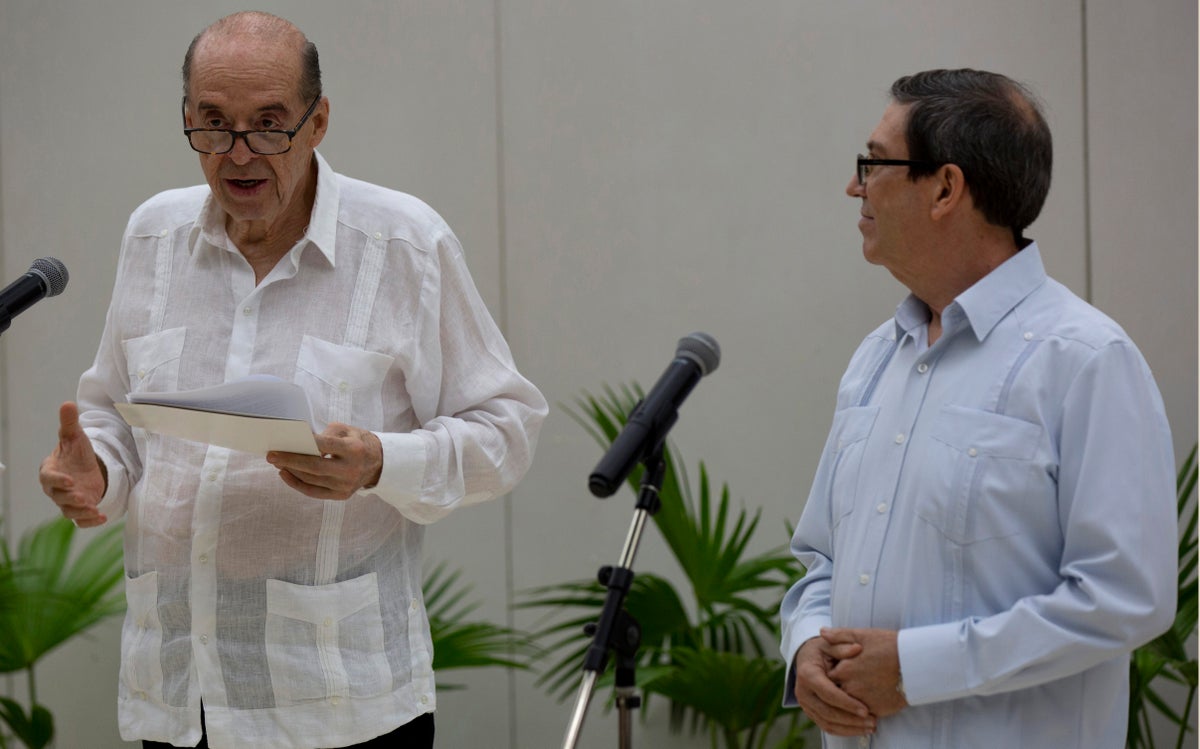
Colombia's new government and members of the nation's last guerrilla group took steps Friday toward restarting peace talks that were suspended three years ago in Cuba.
After a meeting between representatives of both sides in Havana, Colombia's national peace commissioner, Danilo Rueda, said the government would take the necessary “judicial and political steps” to make peace talks possible with the National Liberation Army, known as the ELN.
He said that included lifting arrest warrants for ELN negotiators who are currently living in exile in Cuba.
The administration of newly inaugurated President Gustavo Petro will engage with the ELN delegation and considers them to be legitimate representatives of the rebel group, Rueda said.
“We believe that the ELN has the same desire for peace as the Colombian government,” Rueda said in his statement. “And hope that they are listening to the many voices in different territories who are seeking a peaceful solution to this armed conflict.”
Peace talks between Colombia's previous government and the ELN were terminated in 2019 after the rebels set off a car bomb at a police academy in Bogota and killed more than 20 cadets.
Following that incident, Colombian authorities issued arrest warrants for ELN leaders in Cuba for the peace negotiations. But Cuba refused to extradite them, arguing that doing so would compromise its status as a neutral nation in the conflict and break with diplomatic protocols.
The United States responded by placing Cuba on its list of state sponsors of terrorism.
Petro has said he wants to start peace talks with the nation's remaining armed groups in an effort to reduce violence in rural areas and bring lasting peace to the nation of 50 million people.
A 2016 peace deal between the government and the nations largest guerrilla army, the Revolutionary Armed Forces of Colombia, or FARC, helped to reduce kidnappings, homicides and forced displacement.
But violence has picked up in some parts of the country as FARC holdouts, drug trafficking groups and the ELN fight over cocaine smuggling routes, illegal mines and other resources that were abandoned by the FARC.
In July, criminal groups staged almost 90 attacks on the police and military, killing 13 police officers, according to CERAC, a think tank that monitors violence in Colombia. That made it one of the most dangerous months for Colombia's armed forces in the past two decades.
The ELN, which was founded in the 1960s, has long been designated by the U.S. State Department as a foreign terrorist organization. The group has an estimated 2,500 fighters in Colombia and also runs drug trafficking routes, extortion rackets and illegal mines in neighboring Venezuela.







